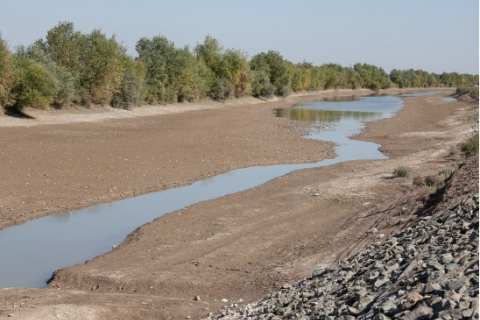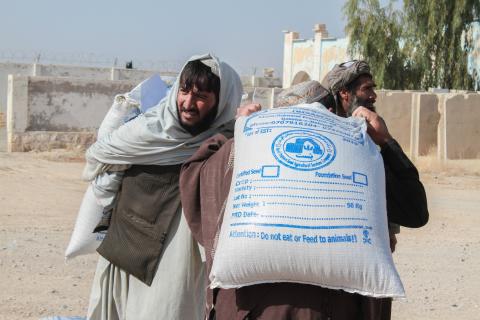8 March 2023
Farmland and pastures across Central Asia are far less productive after decades of monocropping
30 June 2022
Main banner photo: India is struggling to meet the water needs of its 1.4 billion people -- a problem worsening as climate change makes weather patterns more unpredictable SANJAY KANOJIA AFP
Chhatarpur (India) – As the monsoon storms bear down on India, a dedicated group of women hope that after
12 February 2022
Xi is promoting a new vision to tackle long-standing problems like the rural-urban divide, food security, and poverty.
Photo Credit: Depositphotos
26 January 2022
Rome - The Food and Agriculture Organization of the United Nations (FAO) today welcomed a groundbreaking $65 million contribution from the Asian Development Bank (ADB) to boost food security and support livelihoods of the most vulnerable rural communities in Afghanistan.
6 December 2021
The Netherlands Agency for Enterprise and Development (RVO) is pleased to announce its collaboration with the Embassy of the Kingdom of the Netherlands (EKN) in Bamako, SNV, the Royal Tropical Institute (KIT), the University of Legal and Political Sciences of Bamako and the National Coordination of
23 August 2021
Whichever way one looks at it, land is one of the most prized natural assets in the world – Tanzania not excepted, we stress here. This is especially the case for crop farmers, nomadic pastoralists and investors in income-generating-cum-profit-making businesses.
Also, boundary conflicts between
13 August 2021
Around May this year, there was a video that went viral on social media and reintroduced the conversation on how agriculture could be made more “attractive” to the youth in Africa.
The video was from the 2018 Youth Employment in Agriculture conference in Kigali, Rwanda. In the video, a young woman
8 July 2021
CARATA, Peru, July 5 (Reuters) - Maxima Ccalla, 60, an indigenous Quechua woman, has spent her life tilling the harsh soil in Peru's Andean highlands, resigned to a fate far removed from the vast riches buried deep beneath her feet in seams of copper, zinc and gold.
The Andean communities in Ccalla
10 June 2021
A number of heavily entrenched cultural practices and policy orientation continue to frustrate efforts and gender equity in our country.
At the economic level, requirements for example for loans are pegged on collaterals such as land title deeds, yet traditionally women rarely inherited land thus
9 June 2021
He had heard from around the town that there was an elderly but vibrant woman selling a piece of her land in Nkozi, close to Uganda Martyrs University.
At the time, Nkozi did not have the status and population it does now. In 2003, a young Vincent Agaba acquired the land.
“A quarter of an acre at
31 May 2021
Reports of a shortage of land for agriculture in some rural areas are surprising, to say the least. A few years ago it was reported that hundreds of youth in Arumeru District, Arusha Region, were relocating to Kenya because of a lack of farmland in the area.
This state of affairs is surprising
4 February 2021
In a bid to expedite the distribution of land ownership certificates to the landless people and decentralise the federal responsibility, the government has formed committees of the Landless Squatters' Problems Resolution Commission in all the 77 districts of the country. Each of the seven-member












